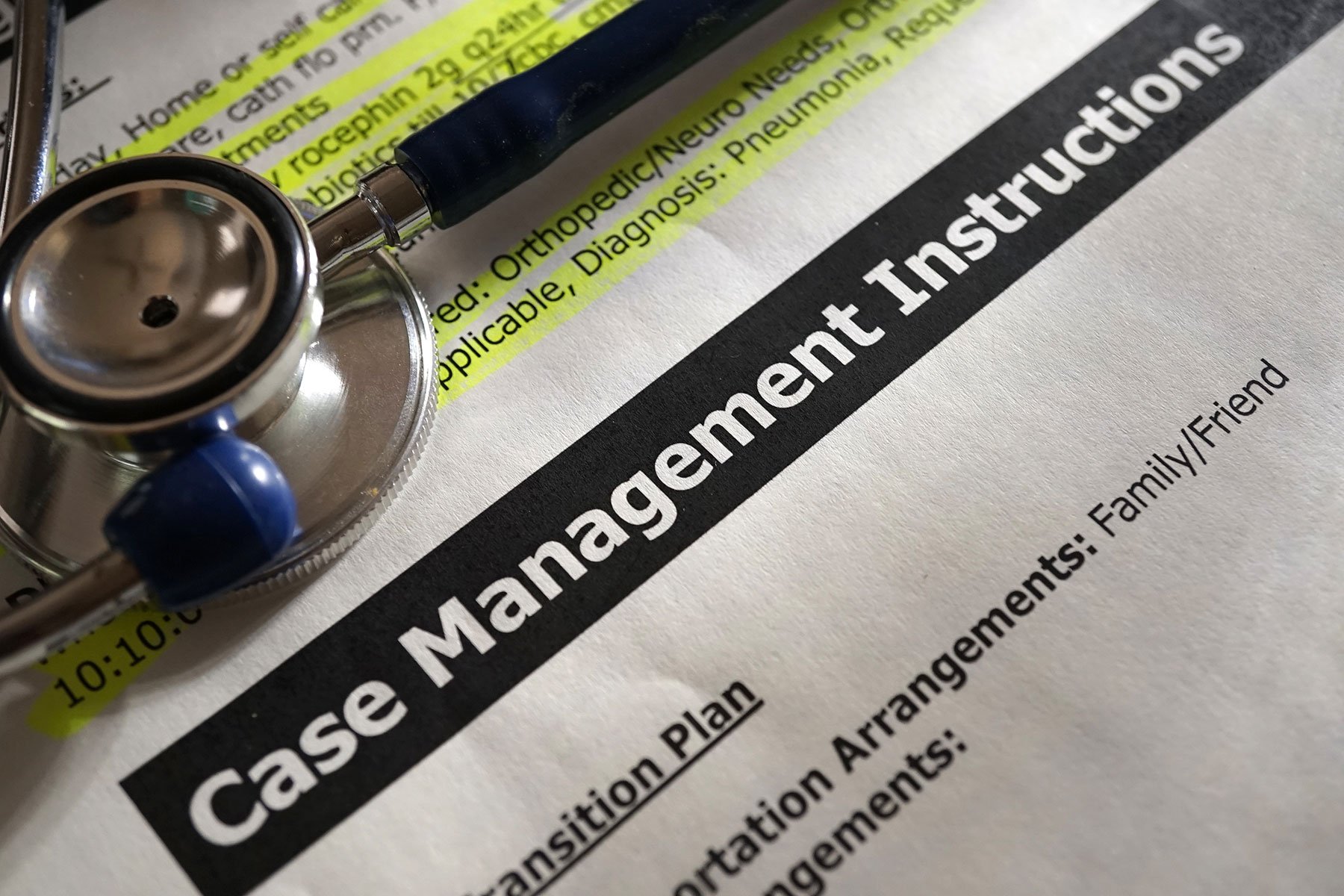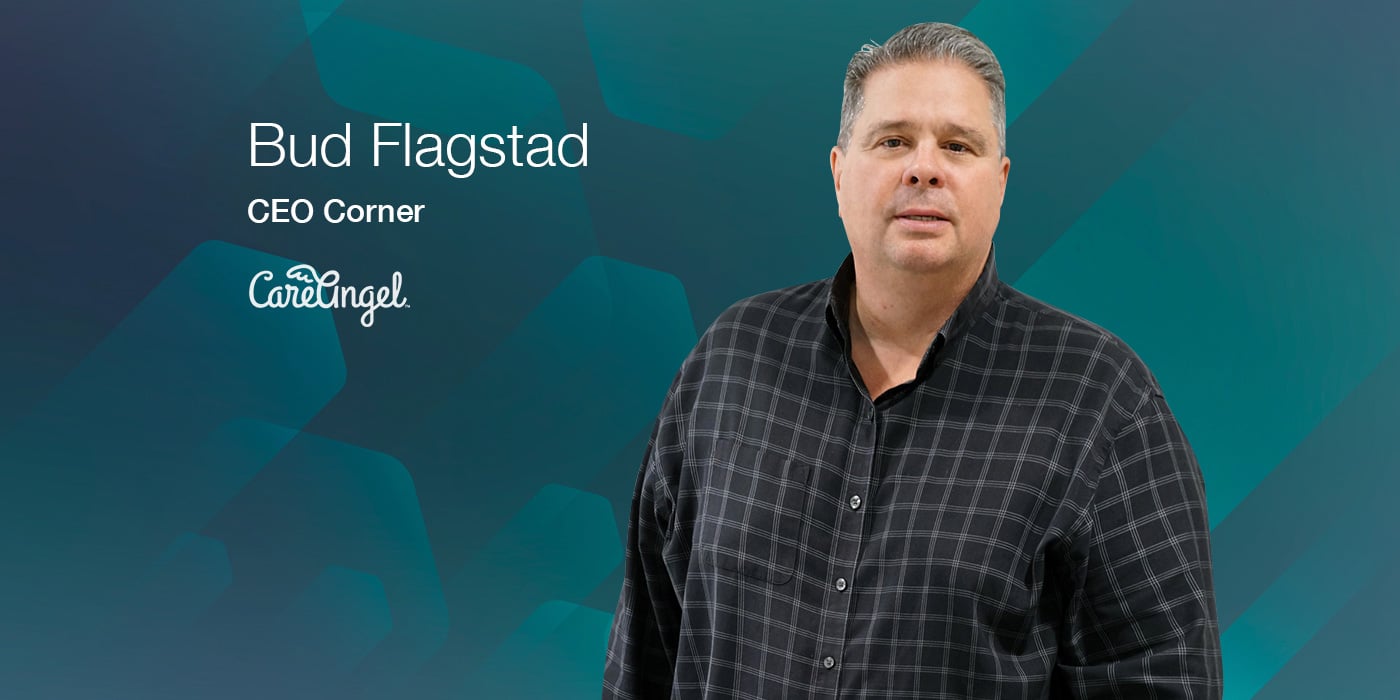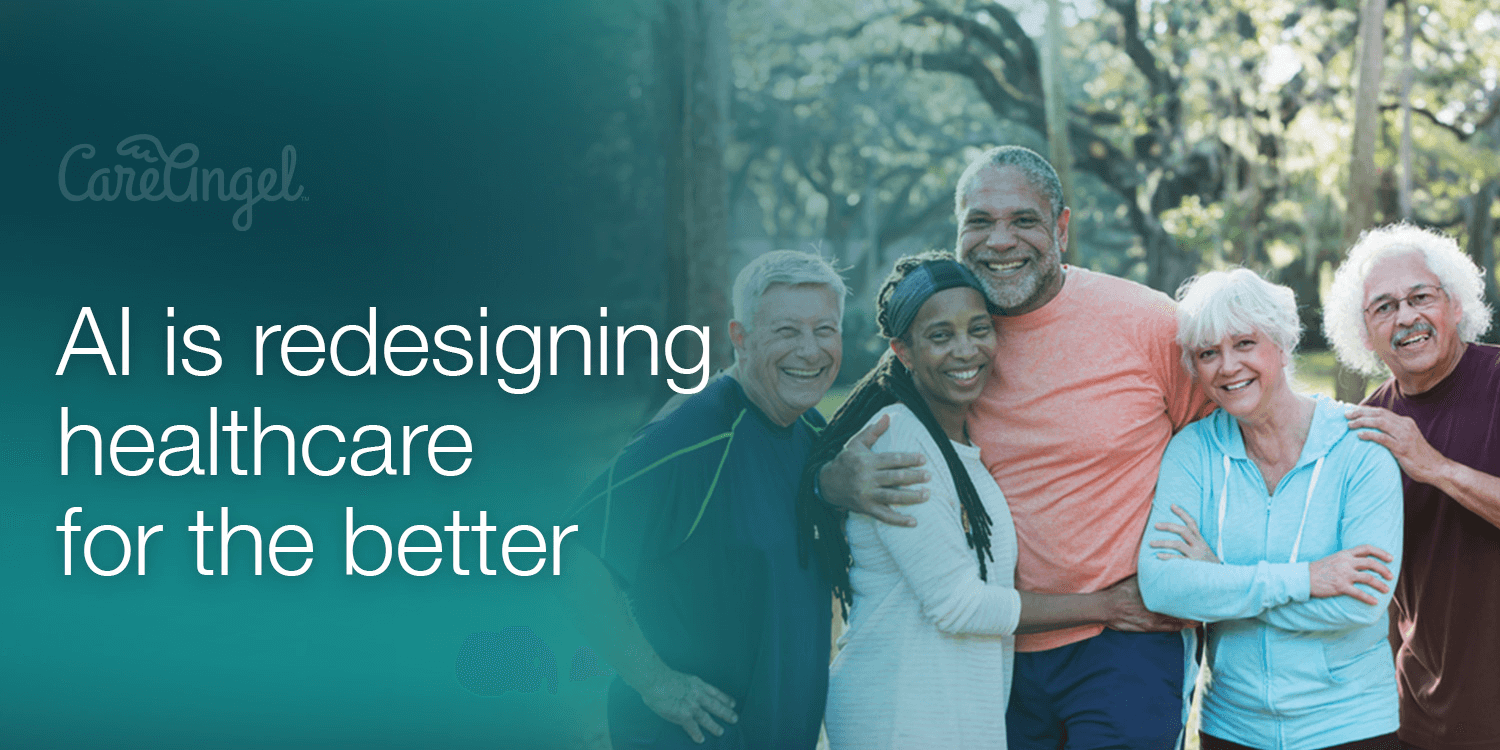Stay Informed
EmpowerHealth is on the Cutting Edge of Digital Health Engagement, Read About Our Distinctive Technology and Product Features
Articles

As MCOs are transitioning coverage for their beneficiaries, it’s no surprise that children and families are being heavily impacted by the Medicaid unwinding. For the eleven states reporting age breakouts for Medicaid disenrollment, children account for approximately three in ten (30%), according to KFF (formerly known as Kaiser Family Foundation).
KFF finds that more than 5.3 million enrollees across all age groups have been disenrolled as of August 23; the research organization considers this number to be an undercount. In all, more than 15 million people are expected to lose Medicaid coverage during the redetermination process and more than 6 million individuals could end up without insurance coverage.
In California, as of June, there were more than 15.5 million Medicaid enrollees, according to the Department of Health Care Services; that's down from more than 15.7 million in January. Just shy of 200,000 individuals were disenrolled due to procedural reasons, which can occur when paperwork isn’t completed appropriately or when letters about disenrollment are mailed to old addresses. Individuals who lose coverage for procedural reasons can have their coverage reinstated as long as they provide updated information to regulators within 90 days.
Here are 4 additional findings about the loss of Medicaid coverage:
CMS has paused disenrollments in 12 states; this is intended to address issues related to procedural disenrollments, reports Healthcare Dive.
Loss of Medicaid coverage will have a significant impact on access to care for low-income individuals, in particular those with chronic conditions, reports STAT.
More than 100,000 Coloradans have lost Medicaid coverage; approximately half of these individuals lost coverage in June, reports CBS Colorado. Many lost coverage due to procedural reasons or because they don’t currently meet eligibility requirements.
When individuals call for help with the Medicaid redetermination process, they’re experiencing long hold times. For example, Montanans calling the state’s Medicaid helpline wait on hold for an average of 37 minutes, reports Montana Public Radio; that’s the third-longest wait time in the country. More than a third of calls to the helpline are abandoned, reports the media outlet.
What can MCOs do? MCOs that are tasked with outreach to enrollees to capture updated information and determine their Medicaid eligibility can automatically connect with individuals and support them in the renewal process.
EmpowerHealth can help.
Our technology helps support human capacity for health insurers. EmpowerHealth increases reach without increasing costs. What health insurers get in return: Personalized, conversational engagement with beneficiaries.
Contact us today to learn more.

Article originated from Becker's ASC Review.
The demand for ambulatory surgical centers (ASCs) is increasing. Case in point: ASCs recently got the nod from the Centers for Medicare & Medicaid Services in terms of a proposed 2.6% payment increase. In addition, payers are directing members to ASCs to maintain lower costs and higher efficiency and quality.
Gastroenterology is a highly represented specialty among ASCs, with 32% of all cases, according to a 2022 ASC benchmarking study. That’s followed by ophthalmology (26%), pain management (21%), and orthopedics (21%).
Pre-operative challenges
Clinical staff are spending far too many hours making calls to patients to ensure they’re ready for surgery—it's certainly not why they went to nursing school. In addition, this workflow is prohibitively expensive, especially when it’s a nurse making the phone calls. Automating outbound and inbound communications—and that can include phone calls or texting or chat—is a far better way to extend scarce resources.
Patients rely on the ASC for two main reasons: A first-class, high-quality clinical outcome and an authentic human interaction. Digital health platforms with intelligent, AI voice solutions that reach 100% of patients can help extend the ASC’s reach. That results in streamlined pre-operative contact with patients that automatically flags pre-procedure care gaps. Communications are data-driven, hassle-free, dynamic, and customizable to the practice, which means staff can minimize time spent on administrative duties and instead focus on clinical care.
ASCs can rely on Care Angel's AI voice tools to confirm appointments, remind the patient of important guidelines and instructions about restricting food, liquids, and medications before the procedure, in addition to lining up a ride home after the procedure. These efforts will help to reduce cancellations and delays and optimize practice efficiency.
Patients often feel scared and uncertain—and overwhelmed by the type or amount of preparation needed before the surgery and the post-surgery recovery. Angel can augment clinical staff by contacting patients at precisely the right time intervals to remind them about key steps in their care journey while checking in at just the right time during the post-operative period.
Early signs of adverse outcomes often present during the post-operative period. Angel helps by engaging via voice, text, or chat to check for signs of infection, such as elevated temperature, chills, sweats, and other symptoms indicating a problem. If there’s an issue, clinical staff is alerted and the patient can speak directly with a clinician—at the right time—avoiding complications.
Angel works not to replace, but rather act as an extension to the practice, increasing the clinical capacity of care managers by as much as 600X, for a fraction of the cost.
Intelligent care management at scale
“Since CMS recently increased the number of approved procedures to 3,500 for ASCs, there’s been a rapid expansion of surgery center volume,” said Nick Martin, chief information officer and EVP of product at Care Angel.
“Surgical practices and outpatient care services can utilize Angel to further optimize efficiency and serve more patients. From delivering pre-operative services to patient information to post-operative assessments, with actionable data as the driver, Angel will improve workflow and reduce burden on clinical staff, which means they can practice at the top of their licenses,” he added.
Within an ASC, practice leaders, surgeons, clinical leadership, and administrators are concerned about balancing business and operational efficiency, while reducing cost and boosting revenue. They’re also focused on increasing clinical capacity, improving care quality, and optimizing the patient journey.
With Angel, care plans, which include HIPAA-compliant patient validation and consent, can be customized for pre-operative and post-operative conversations that work with any ambulatory surgery procedure. Data and information collected can then be pushed to practice software or EHRs for real-time, actionable interventions when indicated.
What that means for practices: Fewer missed surgeries and more patient throughput, without straining existing clinical staff.
With Care Angel’s digital engagement services, ASCs can securely collect the right data, at the right time, and for the right reason. With access to the right information and resources, patients are well informed and educated about their health journey.
Press Releases

MIAMI--(BUSINESS WIRE)--Care Angel, the leader in AI digital health engagement, announces today its offering to support health insurers in maximizing outreach efforts to recertify the nation’s estimated 91 million Medicaid members. The company’s offering is announced amidst the unwinding of the public health emergency, which had allowed for the continuous enrollment of members.
Share this news: LinkedIn | Twitter | Facebook
The end of the public health emergency, which was announced in January 2020 in response to the COVID-19 pandemic, now requires health insurers with Medicaid plans to begin eligibility redeterminations, effective April 1. At risk are the tens of millions of Medicaid members who may lose their benefits if they’re not determined eligible or have missing or incomplete information.
Care Angel offers well-timed, personalized conversations that support health insurers’ cost-containment, revenue retention, and labor-shortage mitigation efforts. Campaigns can be executed quickly and in alignment with Centers for Medicare & Medicaid Services guidelines. Angel, the company’s AI digital health engagement platform, strategically maximizes outreach, while accommodating the preferences and communication needs of Medicaid beneficiaries for phone, text, or secure chat in more than 72 languages.
Angel’s engagement captures members’ household information updates, such as mailing address, employment, income, health, and risk status. The company’s offering is deployed within a secure platform that supports HIPAA compliance.
“Care Angel is uniquely positioned to provide this capability to health insurers, many of which plan to conduct 10 or more touchpoints per beneficiary over the next year,” says Bud Flagstad, chief executive officer at Care Angel. Flagstad spent nearly 16 years in executive leadership roles at UnitedHealth Group.
“We are currently working with large health plans in support of their collective outreach efforts to contact members, in their language, using their preferred method of communication, which includes text as an essential channel,” he adds.
Care Angel deploys solutions that help payers, in addition to providers, health systems, and traditional and virtual healthcare delivery organizations, improve the patient experience and maximize the use of scarce resources.

MIAMI--(BUSINESS WIRE)--Care Angel, the leader in AI voice-enabled, nurse assistant technology that proactively identifies and addresses patient care gaps to improve outcomes for whole populations, announces today that one of the nation’s largest payers generated $62 million in clinical and operational savings from 2021-2022 as a result of its partnership with the company. With Angel, the company’s digital health engagement platform, the large national payer extended clinical capacity by 600 times, while achieving $49.3 million in readmissions savings and $12.7 million in reduced labor costs.
Share this news: LinkedIn | Twitter | Facebook
Angel surfaces the members who need access to resources, information, or clinical support in real time. The multimodal platform, which is accessible by voice, text, and chat, supports payers and providers by increasing patient engagement, which means greater reach without the added labor costs.
Conversely, with a fully in-sourced nurse call center, payers reach approximately 10% of members—and at a higher cost—in an effort to surface care gaps. With Angel, payers have access to a proven machine-learning platform, informed and trained by clinical experts for more than six years. As a result, payers of all sizes can dramatically increase clinical capacity, without adding labor costs, which supports nurses and care managers working at the top of their licenses.
“Payers understand that simply employing more nurses at call centers isn’t going to provide members with the continuous support they need to inform more effective care at scale, while driving positive outcomes,” says Bud Flagstad, chief executive officer at Care Angel. Flagstad spent nearly 16 years in executive leadership roles at UnitedHealth Group.
“Angel is a data-driven platform that helps deliver high touch experiences to bend the cost curve while ensuring faster, easier access to care with the appropriate interventions,” he adds. “We’re thrilled to support one of the nation’s largest payers in engaging with millions of patients. The result is a dramatic reduction in call center costs and the proactive identification and addressing of care gaps in real time for whole populations.”
Care Angel deploys solutions that help payers, in addition to providers, health systems, and traditional and virtual healthcare delivery organizations, improve the patient experience and reduce avoidable readmissions.

MIAMI & FT. LAUDERDALE, Fla.--(BUSINESS WIRE)--Care Angel, the leader in AI voice, nurse assistant technology that proactively identifies and addresses care gaps to improve outcomes for whole populations, and Upside, the only fully managed living option for older adults creating a new category of senior living, announce today a partnership to offer a comprehensive health-risk assessment and housing intervention solution to health insurers.
Share this news: LinkedIn | Twitter | Facebook
This new offering will provide health insurers with actionable intelligence about their members at low, moderate, or high risk for factors such as chronic conditions, lack of medication adherence, preventative care, and social determinants of health (SDOH) measures such as housing.
One in five Americans is projected to be 65 years of age or older by 2030, according to the U.S. Census. A triggering event – which can include one of the “5 Ds,” a death, downsizing, divorce, disaster, or disability – can drive the need to seek new housing. But many seniors lack a full-time support network to help them navigate finding a new home that meets their specific social engagement and health needs. Health insurers are typically unaware that their members are going through these life transitions, and this lack of awareness about their members can contribute to poor health outcomes.
While many health insurers have invested resources in data mining to better understand their members’ needs, where they need greater insight is in understanding their members’ SDOH risks, in particular with housing. Through the Care Angel-Upside partnership, health insurers will have the intelligence they need to predict individual members’ SDOH risks more accurately and respond to their most pressing needs.
“Health insurers continue to curate and mine data, while adding benefits for Medicare Advantage members, but data fragmentation and point solutions often lead to missed care opportunities,” says Bud Flagstad, chief executive officer at Care Angel. “By pairing our highly scalable consumer engagement service with the deep expertise and network of nearly 2,500 communities nationwide, the Care Angel-Upside partnership seamlessly integrates a much needed service to ease the transition to appropriate housing support. With this partnership, the two companies will deliver on health insurers’ need for real-time, secure, scalable, granular-level detail of members’ SDOH, as a result of Angel’s personalized and proactive conversations with members.”
“As we continue to grow the size of our communities and expand into new markets, we’re constantly auditing our offerings to ensure we’re anticipating our members’ needs,” says Upside co-founder Jake Rothstein. “Through our partnership with Care Angel, we’re not only able to remain competitive within the industry – creating a lifestyle that isn’t available through traditional senior living models – but we’re also showing our current and future members that we’re looking to grow older with them and offer support that evolves with their needs.”
The combined offering is currently available in 97 markets across 42 states. By early 2023, it’s expected that the offering will be available in all 50 states.
Note to editors: Nick Martin, chief information officer and EVP of product at Care Angel, and Jake Rothstein, co-founder at Upside, are available to discuss this partnership, in addition to seniors’ SDOH needs, in particular with housing. Nick and Jake will also be at HLTH in Las Vegas from Nov. 13 to 16.
About Care Angel: Founded in 2016, Care Angel is the leader in AI voice, nurse assistant technology that proactively identifies and addresses care gaps to improve outcomes for whole populations. The company provides Angel, a patient-focused digital health engagement service that helps individuals maintain health and well-being, close gaps in care, and improve outcomes.
About Upside: Upside is the only fully managed living option for older adults and is an entirely new category of senior living. The company utilizes modern apartments in vibrant, safe, amenity-rich apartment communities and provides a turnkey and frictionless living experience for those who desire simplified living, later in life.
Blogs

To reach Medicaid members, payers are looking for a solution that will meet members where they are, resulting in effective engagement at the lowest cost.
Technology that boosts efficiency helps increase engagement and capture qualifying information, such as employment, income, and health and risk status. Payers also need help navigating members to take the appropriate action to retain their Medicaid coverage.
Share this news: LinkedIn | Twitter | Facebook
Care Angel’s simple and effective approach helps payers. Our 28% to 83% engagement rate with Angel is consistent across voice, secure chat, and text options. Payer clients should expect to increase their traditional outreach capacity by 600x or more with Angel, our digital health engagement platform.
We sat down for a Q&A with Bud Flagstad, Care Angel’s CEO, to discuss ways to boost outreach efforts during Medicaid determination.
Care Angel: What’s different about Care Angel?
Bud Flagstad: For starters, we have trained Angel for over seven years with medical and health language knowledge. That gives us context for conversations with members. It also allows us to automate repetitive, high-volume tasks. Our campaigns help us reach members; in this case, letting them know about the need to reapply for insurance coverage.
We also help payers identify care gaps quickly and efficiently. Angel can understand conversations in more than 72 languages. That helps us reach diverse populations across the country—how and when they want to be engaged.
Care Angel: What have you learned about when and how to contact members?
Flagstad: We have access to a wealth of data about members, which means we know when they’re more likely to respond and what type of outreach is more likely to generate responses. For example, Medicare members are less likely to respond during “The Price is Right,” while Medicaid members are more likely to interact at certain times using their smart phones via voice or text.
We can circle back with these members using voice, text, and secure chat. Unlike a traditional contact center employee, who may only have time to dial once, our technology can redial, which means we have a better chance of connecting with members. Our technology gives us the flexibility to start with voice and shift to other modalities based on user preferences.
Care Angel builds profiles of members, using the cognitive abilities of our AI model. While most plans have consent to text approximately 5% of their Medicaid population, we’re able to reach and gain consent for texting between 24% to 32% of their population, depending on the campaign. While complying with all appropriate regulations, Angel can engage with members using voice, text, and secure chat whenever they’re most likely to be available.
Staffing nurses at a call center after business hours is virtually impossible, but Angel provides the ability to engage with members—and that means we’re connecting when members are available.
Care Angel: But a payer executive may already have the budgeted dollars to staff a call center. What then?
Flagstad: Payers will save a significant amount of budget dollars by working with Care Angel—and those dollars can be used for other initiatives.
Angel captures information while providing education and navigation support for members—without adding to labor costs. Adaptable and customizable for other costly and critical engagement needs, Angel supports the following programs:
Enrolment and awareness
Maternal health and well-child
Diabetes quality measures
Chronic condition management
Medication and care plan compliance
Post-discharge/readmission avoidance
SDoH and health equity, and more
Care Angel keeps it simple. We're going to help you meet or exceed your Medicaid redetermination targets and keep your members covered.

It’s spring and we are excited about the future of the most meaningful kind of digital health yet! Virtual care has paved the way towards using technology to deliver healthcare at a distance and member adoption is soaring. In fact, according to an article in the National Law Review, at least 7 million patients in the U. S. will access telemedicine services in 2018.
Share this news: LinkedIn | Twitter | Facebook
Care Angel is combining the capabilities of virtual health and artificial intelligence (AI) to expand the versatility of patient engagement to create a truly patient-centered approach to care, beyond acute episodes. Patient monitoring and health management using Angel, our intelligent, virtual nurse assistant, allows doctors, payers and their patient members to communicate bi-directionally between office visits or after hospitalization to improve care plan adherence, patient satisfaction and health outcomes.
AI is actually humanizing modern healthcare and enabling more frequent connections to effectively and efficiently close gaps in care, empowering the patient at home.
Here are 5 ways that AI is helping to redesign healthcare for
the better:
1. PATIENT CENTERED
AI and telehealth are the perfect combination for personalized health monitoring and data gathering of your patient's vitals and wellbeing to foresee potential problems before they occur. Patients are becoming more tech-savvy and want to manage their health using technology.
2. CARE PLAN AND MEDICATION ADHERENCE
Comprehensive care that proactively manages chronic conditions automatically. Keeps medication adherence and care coordination in check for tens of thousands of patients. Custom workflows, including live transfers to provider helps to drive the highest quality and efficiency at the lowest cost for all stakeholders.
3. CLINICALLY EFFICIENT
Imagine if each nurse or care manager could be 300% more efficient. AI and voice solutions allow physicians and clinicians to focus on where they create the most value; the patient encounter. Angel takes the repetitive, redundant tasks away from the caregivers, so they can practice at the top of their license.
4. REDUCE MISSED CARE OPPORTUNITIES
Meeting patients “at their need”, helps the patient to stay on course with treatment plans and increases provider awareness of potential gaps in care. When a medical need arises, the provider is notified in real time with the knowledge they need, leading to improved patient outcomes and better manage whole populations.
Here’s a short video that how AI and voice drives meaningful engagement:
{{ script_embed('wistia', '140wwfqni3', '', 'inline,responsive') }}
5. COST EFFECTIVE DISEASE MANAGEMENT AT SCALE
How many times have you uttered these 5 words? “If only we’d known sooner.” Knowing in advance when a patient didn’t sleep well, was in pain, had out of range vitals, was in need of medical supplies or medical services can help protect the patient from an adverse episode or hospitalization.
How do we make healthcare better and more human?
Think of it this way: The more specifically you can identify the patients that are in need and what those needs are, the more likely it is that you’ll be able to close those critical gaps in care.
Consider what would happen if you could stop spending hours and hours trying to identify patients in need of intervention? Imagine if a nurse assistant could notify you when a patient was in need of attention. In just 1-2 minutes, care managers can review the specific alert, which includes longitudinal data, and appropriately take decisive action to resolve the issue.
The game truly changes when an entire community is rallied toward solving the challenge of making healthcare more human.

When it comes to healthcare engagement, there's a myriad of ways to communicate: email, video, SMS, IVR, direct mail, telephone and the list goes on. Among all these options, voice offers the most advantages in touching lives, but until now, it just wasn't affordable to scale.
Today, there is a rapidly growing trend of AI and Voice as an interface to scale quality healthcare engagement, monitoring and management. Here's why:
Low to no barrier to entry
Easily adopted by all ages
Enables connection without the need for expensive devices or wifi service
Creates an emotional bond and has the capability to learn over time
Provides bi-directional experience that other engagement methods do not deliver
Collects data and analytics that can identify and respond to risk in real-time
CLOSE GAPS IN CARE
At Care Angel we understand that the entire healthcare experience revolves around the patient. From that core premise, we see countless examples among our healthcare partners successfully achieving condition-specific, voice-first, patient engagement that results in:
Extending care beyond the clinical setting into the home, regularly and continuously
Identifying patients who are in need of care, avoiding missed care opportunities
Improving triage, intervention and the delivery of remote care when deemed necessary
Empowering the patient and their family caregivers by giving them the tools and voice to participate in their own health, wellbeing and care plans
Reducing clinical and operational costs, improving ROI and patient satisfaction
LET’S LOOK AT THE DATA
17% is the average avoidable hospital admission (caused by gaps in care)
22% is the average avoidable hospital readmission (caused by gaps in care)
$10-25K is the average cost for a Medicaid patient readmission
At Care Angel, we align actionable data and advanced analytics so that providers and care teams, like you, can better care for populations. Together, we have reduced avoidable readmissions by 63% and lowered clinical costs by over $496k, per one thousand patients, annually.
THESE 5 STEPS GUARANTEE YOUR SUCCESS
Step 1: Personalized welcome call to the patient, from the familiar voice of their provider to build rapport and reinforce engagement
Step 2: Proactive Care Calls across entire populations. Consistent, evidence-based care plans based on chronic condition(s)
Step 3: Automatically trigger alerts that identify patients needing attention, in real-time to help care teams avoid missed care opportunities
Step 4: One click live transfers to seamlessly connect to clinician or care team for triage or intervention and resolution
Step 5: Real-time data and analytics, plus quarterly contract performance reporting, including avoidable hospital admission and readmission reduction and improved outcomes
Organizations such as payers, providers, MCO’s, ACO’s, MSO’s, IPA’s and others that manage costly, high-risk Medicare and Medicaid populations can achieve the highest health engagement, monitoring and management in the industry by using Angel, Virtual Nurse Assistant.
We place the patient at the center of the eco-system to deliver a level of engagement that has never before been possible.
AI and Voice is a trend we are seeing on the rise for 2018 as evidenced by these papers and articles recently published: